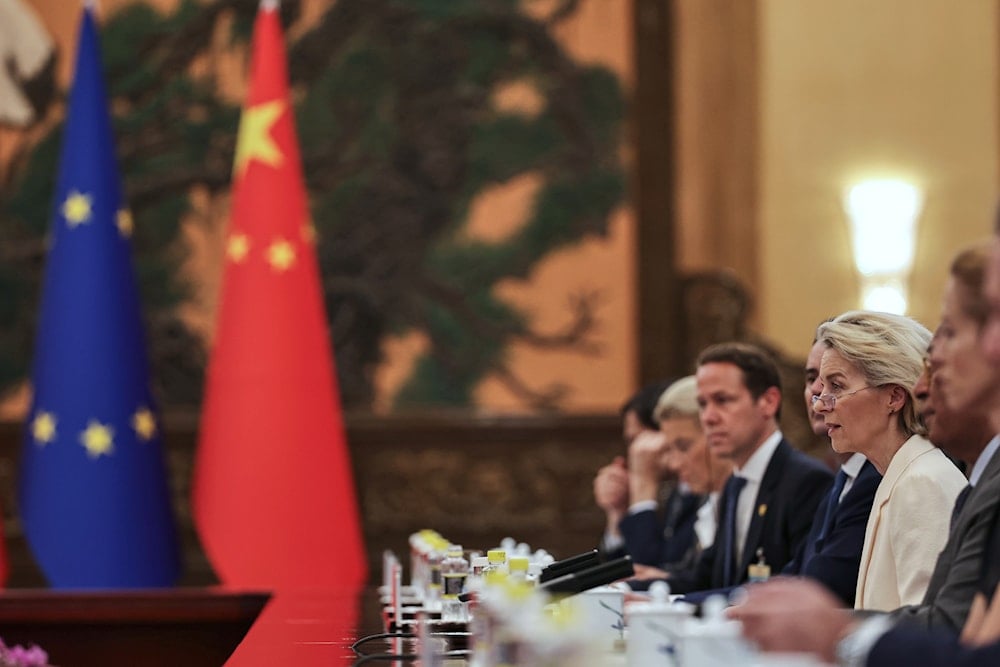European firms growing more dependent on China, chamber chief says
European firms are growing more reliant on China to stay competitive, amid rising trade tensions.
-

European Commission President Ursula von der Leyen, third right, attends during the opening remarks of the European Union - China Summit at the Great Hall of the People in Beijing, China, Thursday, July 24, 2025 (AP)
A key business group noted that European multinationals are increasingly dependent on China to maintain their competitiveness, as leaders from the European Union and China gather for a summit aimed at addressing the growing trade tensions between the two sides.
“In order to have the best product at the most attractive price, you obviously need to source the components where you get the best components at the most attractive price. And in many, many cases, that is here in China,” President of the European Union Chamber of Commerce in China, Jens Eskelund, stated.
“So we see actually in many ways that European business is becoming not less dependent, but perhaps more dependent on China,” Eskelund told Bloomberg in a Thursday interview.
The remarks coincided with high-level EU talks in Beijing with President Xi Jinping, as mounting tensions over the Ukraine war and trade frictions overshadowed the visit, with China’s restrictions on rare earth magnet exports hitting European carmakers and Brussels’ latest sanctions on Chinese firms over ties to Russia deepening the diplomatic rift.
During the tense one-day summit with Chinese President Xi Jinping marking 50 years of diplomatic ties, European Commission President Ursula von der Leyen called for a fundamental shift in trade relations between the European Union and China, stressing the need for greater balance in the face of growing economic tensions.
In her remarks, von der Leyen stressed the importance of rebalancing trade ties and highlighted the need to work toward a fairer and equal partnership.
Rare earths remain center-stage
Eskelund pointed to the curbs on rare earths exports as the most urgent issue for the two sides to tackle in the next year, though he admitted that hopes for a major breakthrough during Thursday’s summit remain low.
“We think this is one of the things that can be done to restore confidence. That is, that a model is found where a more general licensing scheme is devised that allows business continuity for European companies,” the EU chamber of commerce head stated.
EU targets Chinese firms, China retaliates
On July 6, following the EU's decision to block Chinese companies from securing key medical equipment contracts, China responded by imposing a similar ban on European firms, a move that significantly intensified trade tensions between the two economic powers.
China’s Finance Ministry stated that EU firms, excluding those with European capital already established in China, would be ineligible to participate, and it mandated that non-European companies submitting bids ensure products made in the EU do not exceed 50 percent of their total offer.
At the same time, China’s Commerce Ministry stressed that the country remains open to settling disagreements through talks, expressing Beijing’s readiness to work with Brussels toward mutually agreed solutions in public procurement matters.

 3 Min Read
3 Min Read










